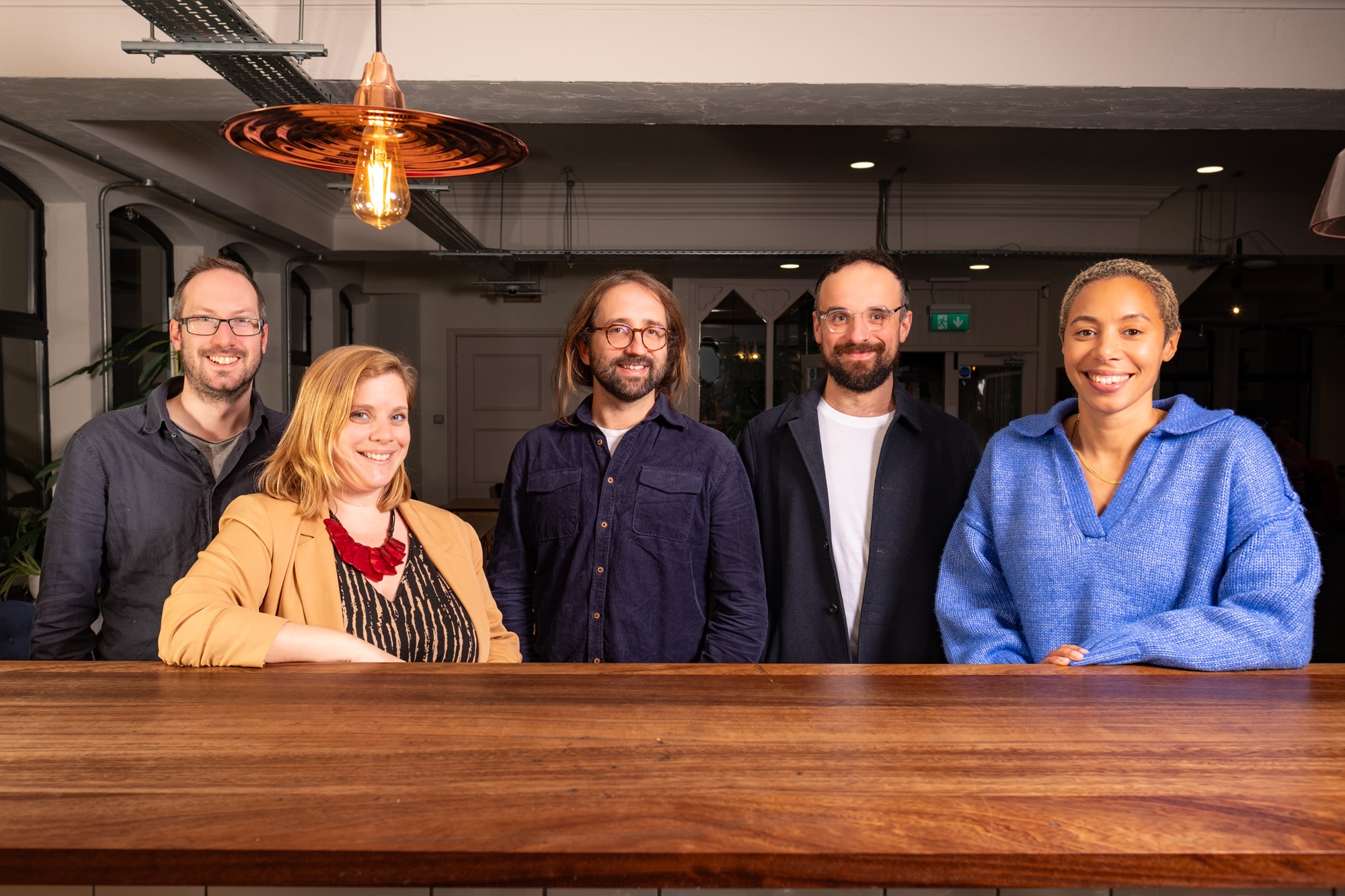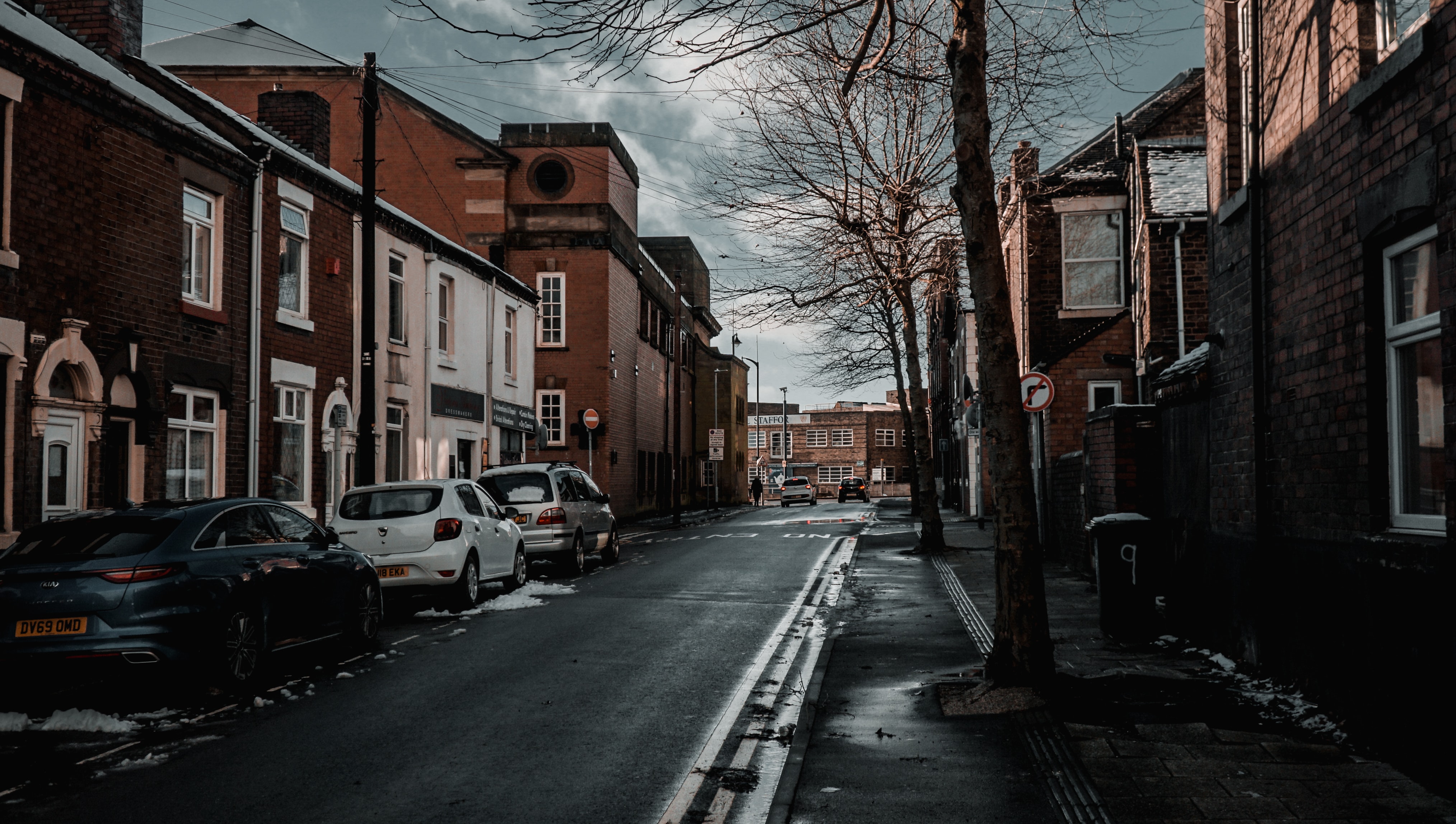Where the government fails, people in Blackpool step up: Inside Bispham's warm bank
There are around 1,300 spaces like Kilmory Community Centre in Bispham keeping people out of the cold. But their future is far from secure and their reason for existing in the first place points to a failure of government and politicians.
“I’m freezing,” says Jackie, greeting her friends as she walks through the front door of Kilmory Community Centre, her teeth chattering. She’s walked the 100 metres or so from the front door of her home assisted by a mobility walker and her daughter, Donna.
At least for the next few hours, she has somewhere to warm up.
There’s a handful of residents from the surrounding cul-de-sacs at the community centre on this bright and chilly Saturday morning. While others come and go, this is the core group who come to all of the events here – the Tuesday lunch club, the Wednesday evening bingo, and the warm hub on a Saturday morning.
As well as Jackie and Donna, there’s Trevor, who sits quietly most of the time but likes to make himself useful by tidying and washing up. There’s Christine, originally from Manchester who came to Blackpool after she got married because her husband said he fancied living at the seaside. There’s Charlie, who has a history of severe mental health problems but who now volunteers at the hospital. And at the centre of it all is Sherri, a resident who volunteers to run this hub – currently busying herself behind the kitchen hatch making sausage and bacon barms. All of them live alone.
Built in the late ‘70s, the small social housing estate the group live on features neat rows of no-frills brown and yellow-brick terraces surrounded by small patches of grass with signs that read ‘No ballgames’.

Kilmory Community Centre, Bispham. Credit: Claire Walmsley Griffiths
A 15-minute walk to Bispham Village and two miles inland from the promenade, the immediate surrounding area features an industrial estate and, in contrast, North Blackpool pond trail. But many of the residents on Kilmory, designed as retirement housing and made up of one bedroom flats, have health or mobility issues and can’t walk far. There is no corner shop or social club. For them the community centre is a lifeline.
Donna, who’s been staying with her mum for two weeks over the holidays, makes two mugs of strong tea from a flask of hot water. She and her mum sip from them in unison, showing off their intricately decorated Christmas-themed false nails – Donna’s traditionally festive in red, her mum’s in a rebellious black.
“I live on my own now so it’s nice when Donna’s here,” says Jackie. When the pair drove to Blackpool from Donna’s home in Barrow-in-Furness, they brought with them three kittens from Donna’s cat’s litter of seven.
“They finally settled down and went to sleep just as we pulled off the M55,” laughs Donna. Two of them are going to Sherri and she’ll be leaving the third one behind to keep her mum company.
“We were working on very last minute funding arrangements and had little time to plan based on six-month grant allocations, but the community came forward brilliantly..."
Warm hubs sprung up in our libraries, community and faith centres last winter, largely as a grassroots reaction to people needing to escape freezing homes during the worst cost-of-living crisis in 70 years.
Given their informality in many cases, statistics on the provision and their use is patchy, but in December 2022 a Labour Party survey suggested there were around 13,000 spaces keeping people out of the cold.
If you're enjoying this piece and not signed up to The Blackpool Lead then discover more about us or sign up below - our warm hubs feature continues below.
The Warm Welcome campaign – which supports and promotes the spaces – surveyed around half of that amount and estimates that 550,000 individuals visited them in the winter of 2022/23, hosting nearly 2.5 million individual visits.
Research from the Joseph Rowntree Foundation found as many as one in six people had used them. Like food banks before them, warm hubs became a potent symbol of poverty in the UK.
In 2023 around 27,500 Blackpool households were living in fuel poverty, according to estimates by the End Fuel Poverty Coalition – 28.01 per cent of households in Blackpool North and 38.36 per cent in Blackpool South.
While many warm hubs still operate independently, Blackpool Council says over 4,500 households used the warm hubs it provided in the town last year, using central government funding in the form of the Household Support Fund.
“We were working on very last minute funding arrangements and had little time to plan based on six-month grant allocations, but the community came forward brilliantly to make sure there was a good offer for people who needed support,” says Kate Aldridge, head of commissioning and corporate delivery for the council.
Year-long funding was announced in March, which Aldridge says was still insufficient, late, bound in bureaucracy and too short term, but led to a more coordinated approach.

Residents at Kilmory Community Centre in Bispham. Credit: Claire Walmsley Griffiths
For winter 2023/24, it allocated £481,000 across 27 organisations in the town to provide support as well as a physical place for people struggling with the cost-of-living to go. Reflecting the increasing recognition that the provision is needed year round, rather than warm hubs the council calls them ‘welcoming places’.
Some 46 per cent of social housing tenants live in poverty making them particularly hard hit by the rising costs of life essentials such as food and heating. But the residents at Kilmory Community Centre say it isn’t the warmth in particular that keeps them coming back on a Saturday morning.
“It’s the company we come for,” says Jackie, whose husband died last year. “If it wasn’t for this place I’d be doom and gloom.”
“She’d be stuck in the house all the time,” adds Donna. “Sherri is an absolutely amazing support. She takes her shopping and to doctors appointments. I can go home and know she’s got Sherri.”
The pair wouldn’t have met if it wasn’t for the hub.
“Without this you don’t see people from one day to the next,” says Sherri. “Our living rooms are at the back so you don’t even see people walking past unless you actually come out.”
The experience of the Kilmory residents echoes the findings of the Warm Welcome campaign – that people visit warm hubs as much for social connection and to combat loneliness as to keep warm.

Sherri with residents at Kilmory Community Centre in Bispham. Credit: Claire Walmsley Griffiths
“There’s a longer story that Warm Welcome is responding to which is the erosion of community places where people can gather and be together, whether that’s pubs, faith spaces or community halls,” says David Barclay, Warm Welcome campaign director.
“That’s a longer term issue that is going to take longer to solve, even if the cost-of-living crisis does ease.”
The World Health Organisation tells us that the effect of social isolation and loneliness on mortality is comparable to that of smoking or obesity and Barclay argues that warm, welcoming spaces need proper resourcing as a preventative measure.
“There isn’t a sustainable long-term plan to fix this and that’s the fundamental issue. It’s one that the government needs to tackle and that the Labour Party needs to take seriously as well. Civil society has really stepped up in terms of providing warm spaces but we need government and politicians of all stripes to catch up.”
Sherri started running the hub last year after her ward councillor, Jo Farrell, knocked on her front door while out checking on residents in the lead up to winter.

Board games at Kilmory Community Centre. Credit: Claire Walmsley Griffiths
“I lost my husband 11 years ago and I can’t work because of my osteoarthritis,” says Sherri. “I did volunteer at the library but that got shut down so I needed something to do just to get out. I get something out of it too.”
Farrell, along with her fellow Labour councillor for the Ingthorpe ward, Jon Bamborough, pop along this morning with a bunch of flowers to thank Sherri for her work over the past 12 months. On Christmas Day, the pair cooked dinner in the centre for the residents, knowing most of them would have been otherwise alone.
“Last winter we were so worried about everyone, thinking they’re going to be freezing, so I asked Sherri if she’d do a Saturday morning at the centre,” says Farrell, who funds the warm hub out of her ward budget. “We just funded it for three months but the people came to rely on it so we just carried on. It’s not a lot of money – about £75 a year – but to take it away from them would be awful.
“I think it brings out community resilience and the funding for these spaces should be there anyway,” adds Farrell. “So many of our residents are lonely and vulnerable so it is important… It breaks my heart that people have to struggle and then they’re lonely as well.”
Although it doesn’t operate this particular warm hub, Blackpool Coastal Housing, the social landlord of the Kilmory estate and many others across the town, has operated 11 welcoming spaces over the last 12 months using the Household Support Fund.

Residents chat at Kilmory Community Centre. Credit: Claire Walmsley Griffiths
Nearly 2,000 of its residents visited in the first 12 months and this winter can return and be provided with two-course hot meals and energy saving appliances including air fryers, slow cookers and heated blankets.
“After the isolation of the Covid lockdowns, which ripped the heart out of the community, the amazing success of these hubs is that the communities are coming back together more on a social basis,” says resilience team leader Stefan Fish. “A number of community groups have since accessed Blackpool Council’s Rideability community transport scheme to go on organised day trips. Some of the community groups have started their own groups out of normal working hours and some have arranged meals out together.”
But with no indication that the Household Support Fund will be renewed in the spring, the future of the provision is uncertain.
A stones throw from Kilmory community centre is the office of Paul Maynard, Conservative MP for Blackpool North and Parliamentary Under-Secretary for the Department for Work and Pensions.
“As the minister responsible for pensions and pensioner poverty, I am acutely aware that many pensioners still live in material poverty, which is not related to financial circumstances but rather social capital,” he says.
“I have already commenced work on looking at how loneliness and social isolation interacts with financial capability, meeting with smaller community-based charities to harvest ideas. This may involve looking at how the many billions government is spending on supporting individuals through numerous pots, as well as council spending, can be spent effectively”.
"They are still facing incredibly difficult decisions about whether they can afford to heat their homes and eat a decent meal… I worry about how families – and many others who are just about managing – will cope next year."
Maynard says the Government recognises the impact higher energy prices have had on the most vulnerable and points to extra cost-of-living payments made this year, including increased winter fuel payments and cold weather payments, and one off payments to those on Pension Credit and PIP.
But Kate Aldridge says residents in Blackpool are still struggling to stay on top of their bills.

“That is not what I see when I talk to residents – people surviving, and sometimes only just despite working hard for their families.". Credit: Claire Walmsley Griffiths
“Government point to the increase in local housing allowance and slowing inflation rates, coupled with an increase to national minimum wage – which is still 54p adrift of the real living wage – and say grant funding such as the Household Support Fund is no longer required.
“That is not what I see when I talk to residents – people surviving, and sometimes only just despite working hard for their families. They are still facing incredibly difficult decisions about whether they can afford to heat their homes and eat a decent meal… I worry about how families – and many others who are just about managing – will cope next year if there is not a clear funded pathway for local authorities to provide really impactful support.”
Around one large table at Kilmory Community Centre the residents continue to chat good humouredly about the minutiae of life – their health concerns, doctors appointments and the things on their to-do lists – as well as their plans together. Last year they had a day out together in Southport and they debate where to go next – perhaps Clitheroe, or even Skipton.
“It’s a friendly group and we always have a good talk and a good laugh,” says Christine over the chatter.
“This is why I do it,” says Sherri. “Some Saturday mornings I get up and think I don’t really want to do it, but no, I think, get up. If people leave here on Saturday with a smile on their face that’s my job done.”




The Blackpool Lead is now on Substack.
Become a Member, and get our most groundbreaking content first. Become a Founder, and join the newsroom’s internal conversation - meet the writers, the editors and more.





